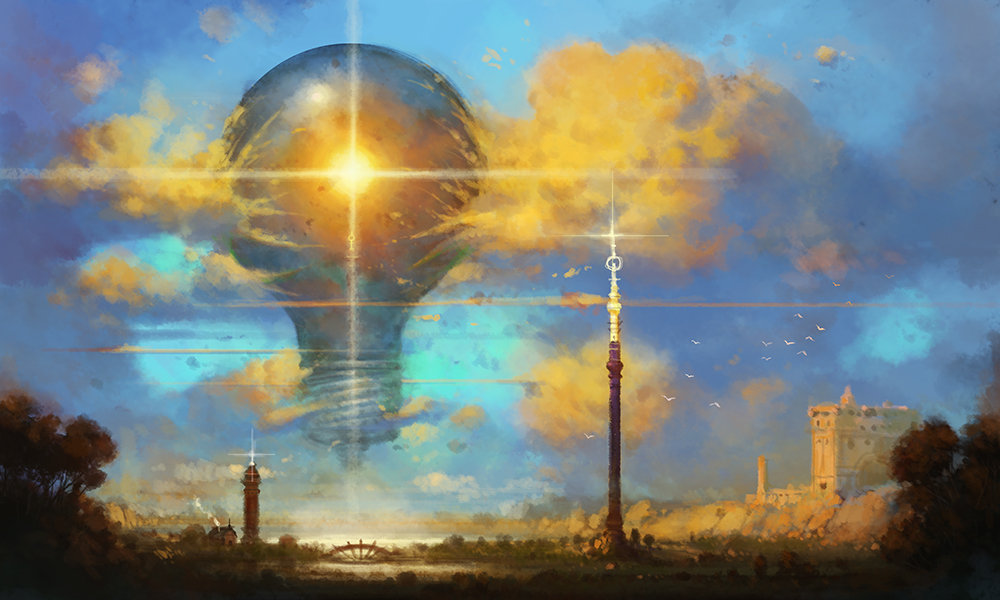The Mourning Lord
The Mourning Lord is a prophecy either written or discovered by Albus Rickette, who is said to have found the text in his pocket after his quest to find the Athanaeum. While not known to any mortal scholar, it is loosely connected to The Black Fox of Pandemonium, as it is thought to have been recovered at the same time.
Loading... Be careful with this information, Admin. Those who receive it often find themselves at the wrong end of the gods' attention.
Summary
While the translation from the Fey tongue to Common is difficult, most consider the translation to be more-or-less complete. Some theorize that the poem was written in a way that would be easy to translate, as the original text is overly flower and often redundant, as if searching for idioms that did not yet exist. In Common, the poem reads as follows:
The ground shall quake beneath his feet,
The sky will pour with hellfire sleet,
End will gather like dragons horde,
Heed the birth of the Mourning Lord.
Once he is found,
The empty tongue,
Twice he is bound,
The weeping lung,
Thrice he is twisted,
The Jester’s grin,
At last he is lifted,
The Sheperd’s sin.
He Who Walks with the Dawn shall burst forth,
And the Cracks of the Mirror will be healed in his light.
The sky will pour with hellfire sleet,
End will gather like dragons horde,
Heed the birth of the Mourning Lord.
Once he is found,
The empty tongue,
Twice he is bound,
The weeping lung,
Thrice he is twisted,
The Jester’s grin,
At last he is lifted,
The Sheperd’s sin.
He Who Walks with the Dawn shall burst forth,
And the Cracks of the Mirror will be healed in his light.
Historical Basis
The figure described in the text has had many names throughout the history of the Entwined Infinities, and has taken forms both godly and mortal.
"Once he is found, the empty tongue" refers to the birth of Amphisbaena. When the creature was first born, Raemus believed his son was like himself -- possessing of one serpentine head -- but was surprised to find that his newborn had a head on both ends, thus the Mourning Lord being "found". The opposite of his other half, being of silver tongue and godly pride, the Mourning Lord is said to be of "empty tongue", as he would rarely speak unless directly spoken to.
Twice he is bound, the weeping lung takes note of two events in the Mourning Lord's early life. The first, when the One God held down Amphisbaena and cleaved the two souls in half (as part of an experiment that he would later follow to sever his own head), resulted in the Mourning Lord's identity as Amaunator, an ancient deity of the sun. The term "weeping lung" refers both to Amaunator's wound, but also his newfound courage to speak. He was considered harsh but fair by his followers, and seemed to have lost the quiet shyness held by his previous form.
The second binding refers to the Folly of Karsus, an event of legend that destroyed magic in the world before this existence, and killed the majority of Amaunator's followers. Knowing his astral form would soon perish from lack of worship, it is said that Amaunator held out and cut off his own hand, which fell through the Astral Plane to one day create a mortal form. While Amaunator did indeed die -- his raw energy later forming other sun gods -- the Mourning Lord lived on in Tyr Orion, a Half-Elf man with no idea of his true identity.
He went on to become a great hero, attracting the attention of many god-like beings who sensed his latent power, which they had mistaken for cosmic potential. As all mortals who interest the gods are destined to be, Tyr Orion found himself "twisted" into several of their schemes -- notably the selection process for the Dark Warrior (who would later be known as Jestyr), the rebirth of Rufus Geldenleaf, and the battle at End Day.
In the interim between this past universe and the current existence, Tyr Orion was selected to be the hero of mortalkind, and thus took on the mantle of Ihys. After creating the concept of mortality in this new realm, he was betrayed by his brother, Asmodeus, and his soul was sent adrift in the Boneyard.
Thousands of years later, Ihys was reincarnated with all of his memories as the Human wizard Aroden. While he lived a grand lifetime as a scholar and leader of Azlant, he had retired before the events that led to Earthfall, leaving moral stewardship of the nation to his daughter. Wherever he had gone, Aroden was not present to stop Ulder-Keth, and thus returned to find his entire life in ashes. While vaguely described, it is said that Aroden spent centuries attempting to break the Mirror of Azlant, which held down the Starstone, but ultimately satisfied himself with the latter, and abandoned his people.
This event resulted in Aroden's ascension to godhood, thus the passage "At last he is lifted", but at the cost of abandoning any Azlanti survivors -- a cardinal sin for any Shepherd, and thus the comparison. He would later go on to eschew this divine power to protect the planet of Golarion, and lives once more as a mortal under the alias of Kesil.
As of the modern day, it is unknown what event the first and last thirds of the prophecy refer to, only that the Mourning Lord will play a great part in it. It is widely believed by students of the Akashic Record that the "dragons" in the poem actually refer to Linnorms, who are all descendants of Amphisbaena, and that "End will gather" refers to End Day. Mentions of Hell are a tongue-in-cheek reference to Amphisbaena's other head, known today as Asmodeus.



Comments